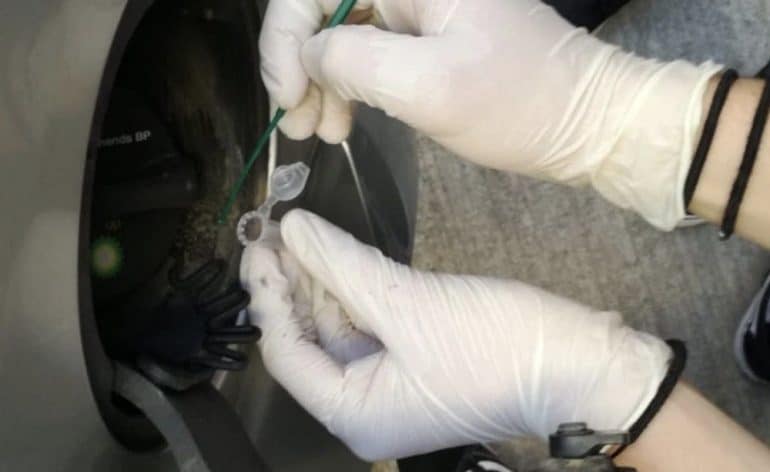99% of the microbes in the trillions of species of bacteria, protozoa and fungi (without viruses) that live on Earth remain unknown, according to a study led by Kenneth J. Locey of Rush University Medical Center in Chicago published in an International Organization six years ago.
Any research in an unexplored environment has a good chance of finding a new piece of this huge biological puzzle. This is the result of a study by the Institute for Integrated Biology (I²SysBio), from CSIC and the University of Valencia, which has found a "specific microbial for microbial life" in car fuel tank caps that differs from that found in contaminated soils. oil and with the ability to survive in extreme environments.
At that time they also found an unknown species of bacteria, of the genus Isoptericola and even unbaptized, "with great potential for biodegradation of fuels from environments contaminated with diesel or gasoline".
The ability to bioremediate (correct infection with natural elements) bacteria of this genus was described, among others, by Erko Stackebrandt, a microbiologist at the University of Munich. But so far the stems have been studied in places where fuel or oil spills have occurred.
The study, published in Nature Npj Biofilms and Microbiomes, looked for fuel consumers who drive their cars daily where the presence of petrol and diesel is permanent.
The aim was to find microorganisms that do not show their activity in random scenarios, but that have adapted to this environment and its ecosystem, in order to have better behavior in decontamination projects.
Biologist Manuel Porcar Miralles, co-author of the project and affiliated with the research team and Darwin Bioprospecting Excellence, explains that everything showed a clear pattern of fuel degradation. "We cultivate various microbial strains that decompose between 50% and 60% of the fuel in a few weeks." Among all the bacteria, an unknown species of the genus Isoptericola with a great ability to remove pollution.
The study argues that "fuel leaks are one of the leading causes of soil and water pollution." Faced with this problem, the team, with various publications on microbes, considered that "bacteria have evolved over billions of years and, as a result, have developed a very different range of metabolic pathways that enable them to receive energy from almost all organic compounds. "Their ubiquitous presence in nature, their metabolic diversity, their high growth rates and their ability to transmit genes horizontally make them perfect candidates for the bioremediation of pollutants."
"Cars with internal combustion engines," according to the study, "are still the most widely used, but were not previously considered a source of biotechnologically related bacteria." With this in mind, they looked at the hole that houses the car's tank cap because it comes in contact with fuel, is subject to huge temperature fluctuations, is dry and in contact with the outside: “It is an ideal setting to find and isolate bacteria adapted to conditions where the only direct source of carbon they receive is hydrocarbons'.
The discovery of an effective microbial community in the degradation of fuels in such a hostile environment and the detection of an unknown bacterium with high capacities in this field have applications in bioremediation. As Porcar sums it up, "there are two fundamental biological strategies: either you wait for the microorganisms to act on their own or you can intervene by inoculating those selected because they break down hydrocarbons particularly well."
Newsauto.gr
